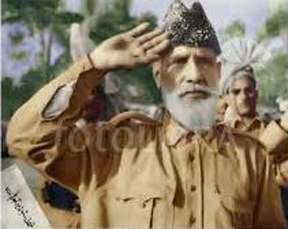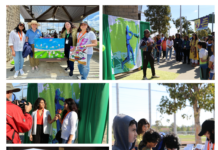
CHICAGO: Pakistan’s Punjab Government seems to have shelved plans to build an Allama Mashriqi Museum and Library for reasons best known to it.
Over a decade ago, The Daily Times reported that the Government of Punjab was moving forward on plans to build an Allama Mashriqi Museum and Library in Lahore in honor of Allama Inayatullah Khan Mashriqi. The proposed museum plan would house his articles, artefacts, unpublished manuscripts and a 1942-model Renault-Benz Mercedes. It was aimed at informing future generations about the genius of the man. The orders to build the museum reportedly came from top Punjab government officials, who met with the late Allama’s family
There seems to have been no action on the museum project for the last over 10 years. The apparent cancellation of the project is surprising to many a person interested in preserving the Mashriqi heritage:
A large number of people around the world – from academics to writers to the general public – visit social media and other websites that provide information on him. Many libraries (including in Australia, Africa, Europe and North America) have added books or historic materials about Mashriqi and his Khaksar Tehrik to their collections. Prestigious publications cover information on Mashriqi and the Khaksar Tehrik
It is important to remember that Mashriqi, his family, and followers made tremendous sacrifices for the freedom of the Indian-subcontinent. Mashriqi was imprisoned and tortured, stabbed and threatened, his movements were restricted, his property and bank accounts were confiscated, the Khaksar Tehrik and Al-Islah were banned, one of Mashriqi’s sons was killed during the struggle (while other sons were tortured), his daughter and wives received death threats, and his followers were jailed, prosecuted, and tortured.
Yet Mashriqi refused to surrender or cooperate and did not relent until the sub-continent was freed from foreign rule in 1947. The contributions and sacrifices of Mashriqi and his movement played a crucial role in the sub-continent’s history.
In 1924, at the age of 36, Mashriqi completed the first volume of his book, Tazkirah. It is a commentary on the Qur’an in the light of science. It was nominated for the Nobel Prize in 1925, subject to the condition it was translated into one of the European languages. Mashriqi, however, declined the suggestion of translation.
Many still hope that the Government of Punjab could still initiate steps to establish an Allama Mashriqi museum and library. The Governments of Pakistan, India, and Britain should also declassify Mashriqi and the Khaksar Tehrik’s materials.
The materials that are available to libraries and other institutions today represent only a small subset of the Khaksar materials produced; the remaining materials are still inaccessible to these institutions and continue to rot in various archives in Pakistan, India, Bangladesh, and the United Kingdom. Even Mashriqi’s rare and historic Al-Islah weekly newspaper remains unavailable in top research libraries in the East and West
Ranbir Singh Bhatti






